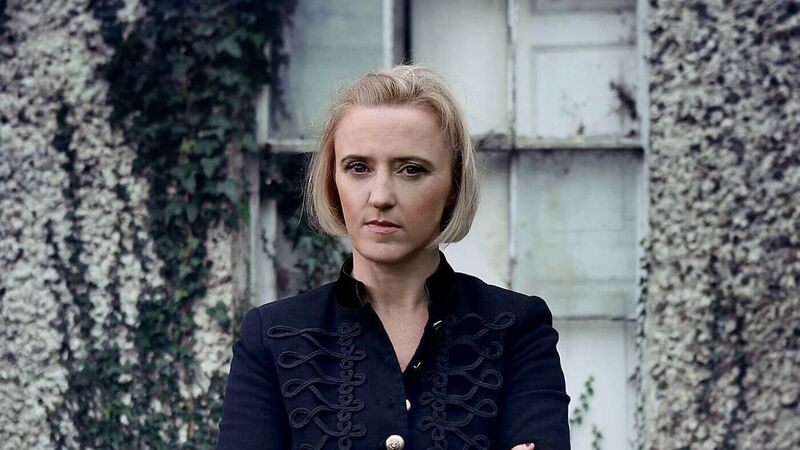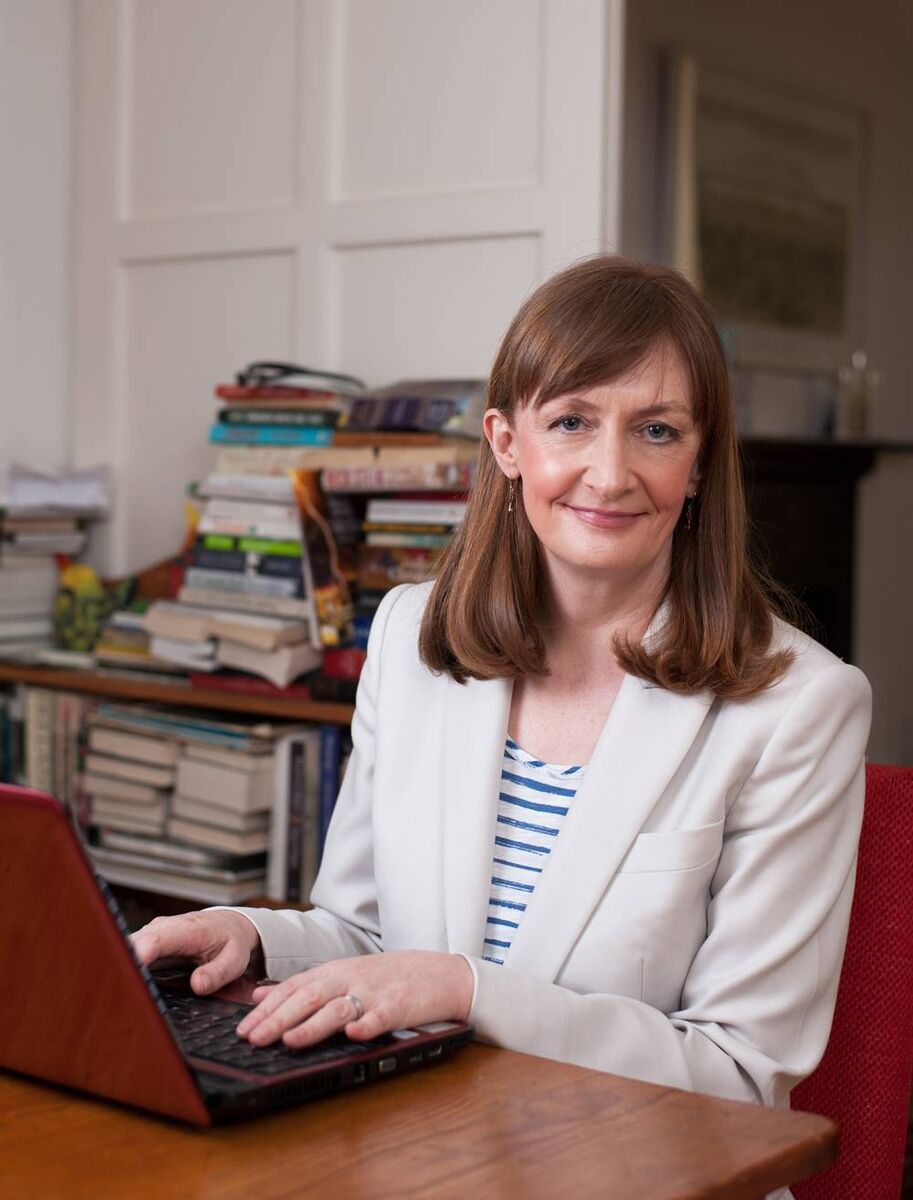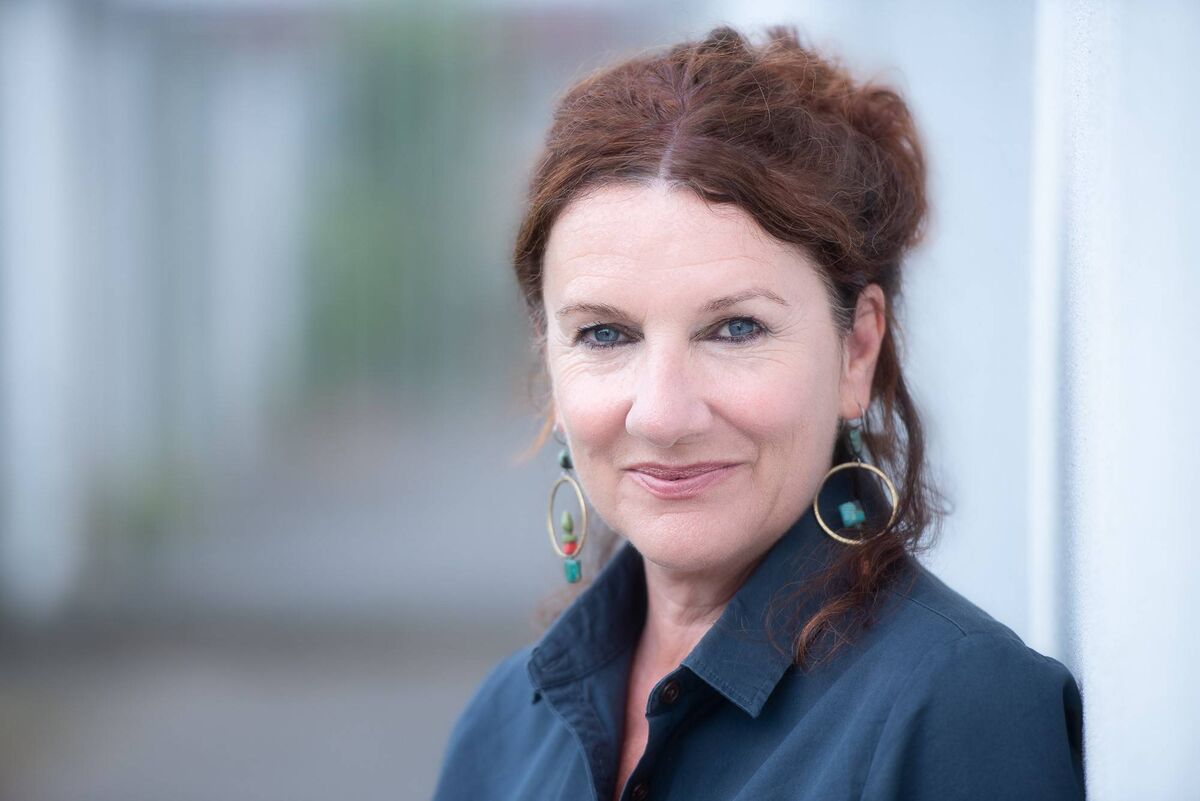Women on writing: How Irish authors get creative

author Liz Nugent broke into a sweat when she saw Graham Norton pull up her book on Rick O’Shea’s Facebook Book Club.
“I nearly died! I didn’t hear anything he said. I had to have a cigarette and compose myself and then listen back — it was amazing.” Norton said Liz has the very rare gift of "being able to hook a reader and keep them hooked", take them "by the scruff of the neck and drag them through a plot".
On the creative process behind that — including how lockdown affected this — Nugent says: “I was in hospital for three months after an accident last November. I got out in February. Lockdown happened, the clinics shut, and I couldn’t get physio. I had to up my medication, which made it really difficult to write because meds affect your mind. I found a Zoom pilates class, was able to come off medication, and got back into my writing stride.
“I’ve been reading a lot during lockdown, especially books by women of colour — Bernardine Evaristo, Candice Carty-Williams, Kit de Waal. Reading absolutely helps — you can’t be a writer unless you’re a reader.
“After a leisurely morning, I write from 12-3pm. Listening to music without lyrics helps, like movie soundtracks — they’re designed to provoke emotion and that’s what you need when you’re writing. I have to have my cup of tea before I do anything — and it must be in the pottery mug my husband gave me.
“ is about three brothers. As one of nine, I’m used to family dynamics. The brothers aren’t at all based on my family, but I’m interested in family dynamics and favouritism within families.
“My mother always said you love the child most who needs you most at the time. In , that’s reversed — the mother’s quite a monster. In normal families, little rivalries get resolved. I wanted to ask, what if they don’t? What if somebody holds a grudge for that thing that happened when they were seven — and the betrayal grows till one’s murdered by another?”

RTÉ broadcaster and author Rachael English had been everywhere launching her latest book, , just before lockdown. “Everything came to an abrupt halt. It wasn’t the best time for a new book to come out, but would any time this year be good?”
When lockdown started, Rachael felt easily distracted and jittery. “It was hard to take myself away from the phone and radio. But as time went on it was really helpful to have the writing to escape into — it’s something small you have control over, almost the only aspect of life that’s completely separate from Covid-19.
“I try to write every day but with work too, it’s not always possible. I write a lot over winter — there are fewer distractions. Once I get stuck into a chapter or scene and the ideas keep coming, it’s hard to walk away.
“I find walking very useful. I wouldn’t even think I’d need inspiration and then, on the walk, problems start getting solved and I think ‘that’s where the story should go next, that’s what this character would have said’.
“For years I wrote at the kitchen table. Recently I fancied a change. I moved upstairs to the spare bedroom; it’s working well. I try not to finish for the day at the end of a scene or chapter. I write the first paragraph – or even line – of the next one, just to get me started next day.
“When I hit a difficult place, knowing I’ve done it before – that I can write a book – helps. With , I was confident in the spark of my idea — about Katie, who worked years before in a mother and baby home and who tries to reunite people with their birth mothers. I could just picture Katie right from the start — relatively small with a quiet determination that showed in her face.
“I can’t say there are never elements of people I know in a character. I’m interested in certain traits, but the finished character would bear no resemblance to the person I borrowed the trait from.
“A book’s just hundreds and hundreds of words. You have to keep writing them down. This methodical way of seeing it demystifies it.”

Playwright and newspaper columnist Hilary Fannin’s debut novel, , was published just before lockdown and she has started a new book.
“Lockdown has impinged. Life was busier, the house fuller. There was a lot of strategising about keeping things ticking over. I’m quite good at grabbing whatever moment’s available. That could be night-time — I’m pretty flexible.
“Creativity-wise, sometimes you find stuff going on in the back of your head. Doing anything mundane, repetitive, tootling around — just chopping onions — is really helpful [for drawing it out].
“I started a creative writing master's in 2017. During that time I knitted a lot of ideas I’d been carrying around in my head. I’m always interested in what people do. I like detail. I gather detail from other people’s lives. I don’t think characters arrive fully born. It’s a very gradual piecing together, an amalgamation of an idea. You have a sense of what it is you’re going to be writing about.
“For me, it was that sliding door moment — God Almighty, how did I get here? What are the choices I didn’t make, the people I left, the relationships that didn’t work out? I was thinking about all that and I needed [characters] to represent points of view.
“Robin in was a secondary character who I knew I needed. But when I’d go to write he was always there. He moved from being a two-bit player to being in pole position in the book. He took over from the rest and became my go-to person.”
Emer McLysaght, who, along with Sarah Breen, co-authors the Aisling books. The latest is (Gill Books, €9.99): "Write something down. Anything — don’t just keep saying ‘I’d love to write a book’. If you think you’ll enjoy it, give it a go.
"My brain’s constantly on the lookout for snippets of ideas for characters and stories. In a hospital waiting room — a universal experience — you’ll see stuff that’s funny and poignant at the same time. Something like his could be a great jumping-off point for a story.
"When you see an idea, put it in the notes app on your phone, text it to a friend — ‘what do you think of this?’ — or leave yourself a voice message.
- Róisín Meaney, whose latest book, , was published earlier this summer (Hatchette Ireland, €14.99): offers these tips: "Read newspapers, listen to podcasts — they’re full of human stories. You never know what you’ll find that’ll spark an idea. Be alert every time you go out. When I get the bus to Dublin, I’d be hoping someone would be having a good conversation nearby.
"To get started, think of a plot idea: ‘This is the story of…’ and come up with the end of that sentence. Then take the sentence and grow it into a page. When I did this, my sentence was: ‘This is the story of a woman who realises she’s dying and gives herself a year to find a cure’. Very quickly, I realised she was dying of boredom. Why? She was stuck in a rut. I kept asking myself questions and writing down the answers. Make yourself sit down. By the end of half an hour you’re going to have developed something — don’t leave the chair ‘til you have."





